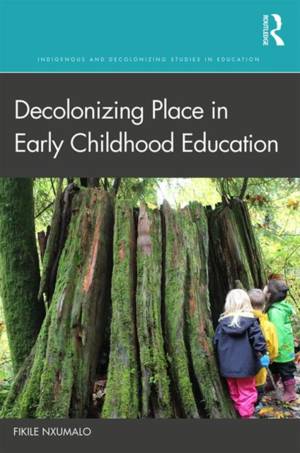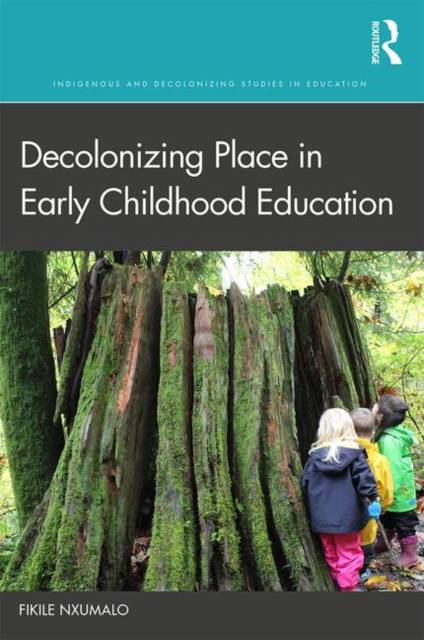
- Retrait gratuit dans votre magasin Club
- 7.000.000 titres dans notre catalogue
- Payer en toute sécurité
- Toujours un magasin près de chez vous
- Retrait gratuit dans votre magasin Club
- 7.000.0000 titres dans notre catalogue
- Payer en toute sécurité
- Toujours un magasin près de chez vous
Description
This book draws attention to the urgent need for early childhood education to critically encounter and pedagogically respond to the entanglements of environmentally damaged places, anti-blackness, and settler colonial legacies. Drawing from the author's multi-year participatory action research with educators and children in suburban settings, the book highlights Indigenous presences and land relations within ongoing settler colonialism as necessary, yet often ignored, aspects of environmental education. Chapters discuss topics such as: geotheorizing in a capitalist society, absences of Black place relations, and unsettling unquestioned Western assumptions about nature education. Rather than offer prescriptive solutions, this book works to broaden possibilities and bolster the conversation among teachers and scholars concerned with early years environmental education.
Spécifications
Parties prenantes
- Auteur(s) :
- Editeur:
Contenu
- Nombre de pages :
- 160
- Langue:
- Anglais
- Collection :
Caractéristiques
- EAN:
- 9781138384538
- Date de parution :
- 31-05-19
- Format:
- Livre broché
- Format numérique:
- Trade paperback (VS)
- Dimensions :
- 155 mm x 231 mm
- Poids :
- 258 g

Les avis
Nous publions uniquement les avis qui respectent les conditions requises. Consultez nos conditions pour les avis.






